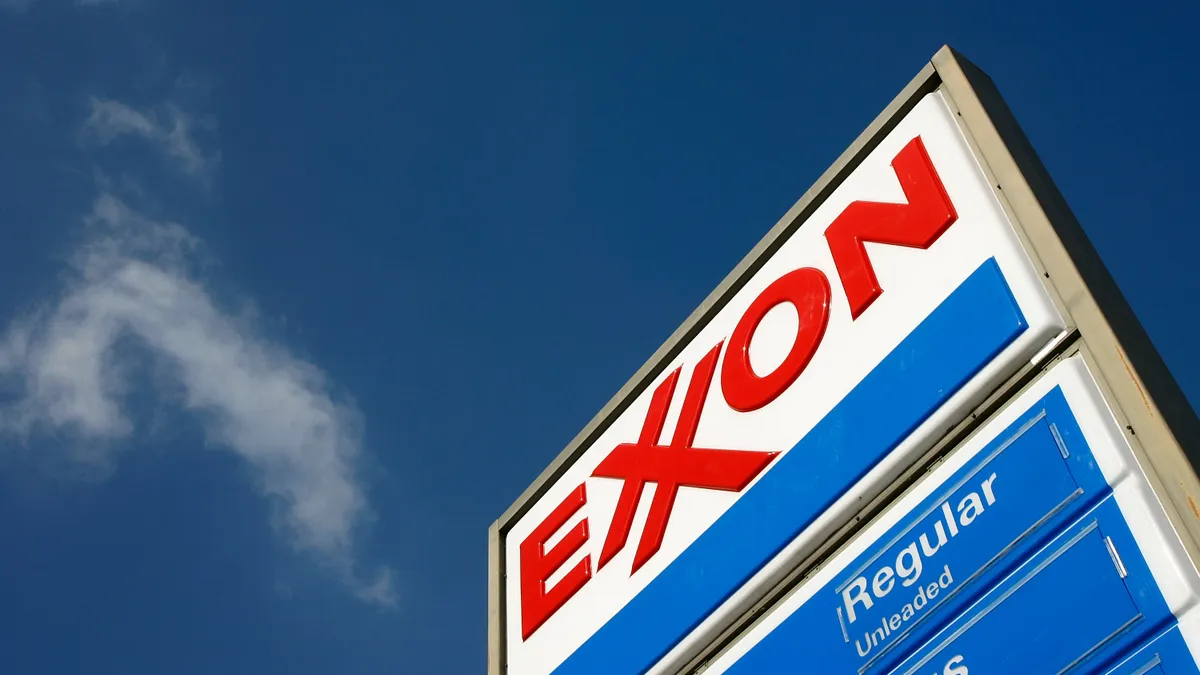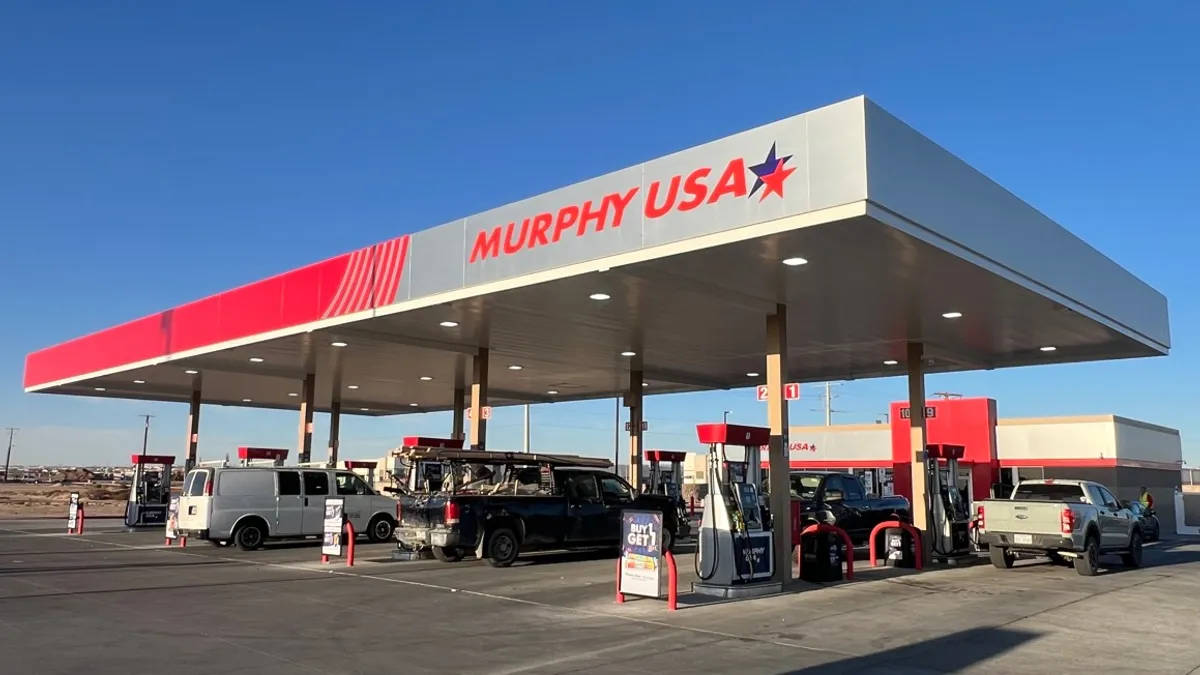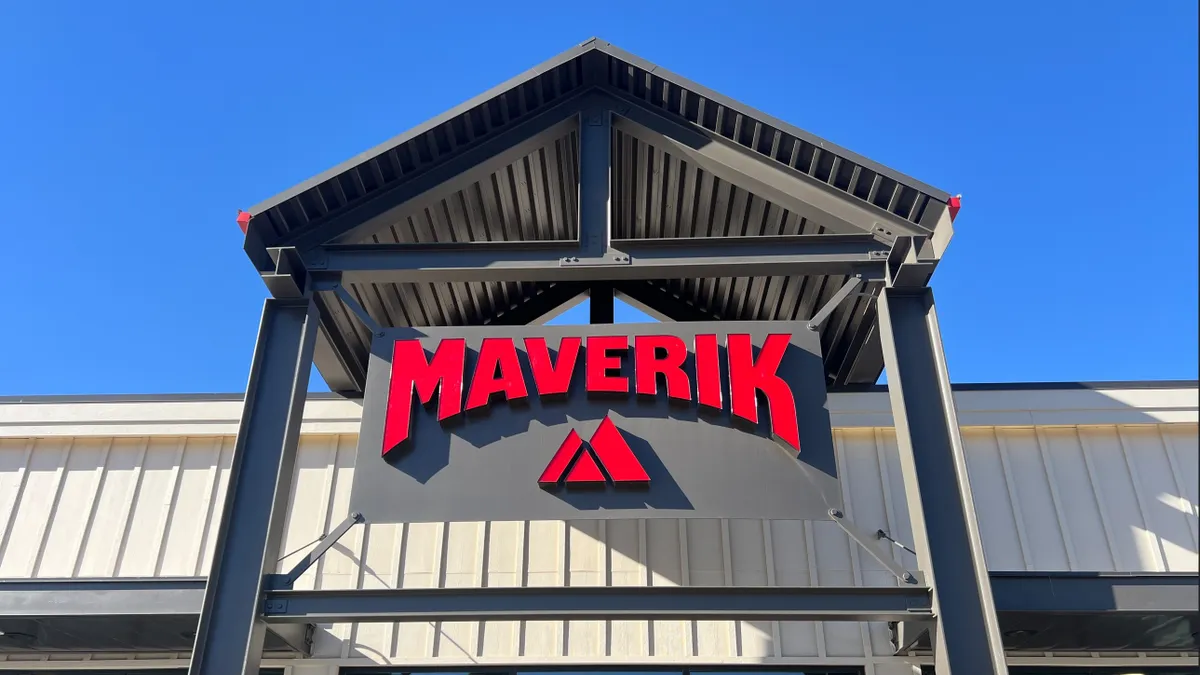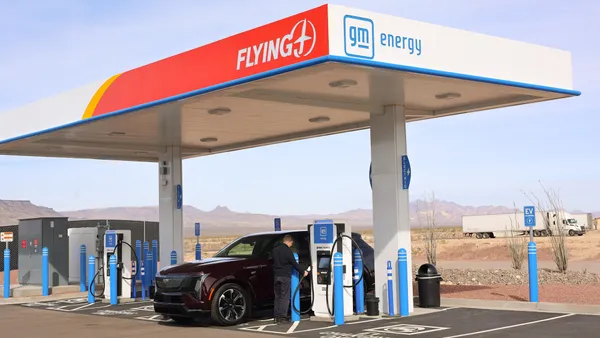Dive Brief:
- Oil giant ExxonMobil has agreed to acquire U.S. carbon capture, utilization and storage (CCS) developer Denbury for $4.9 billion, according to a Thursday announcement.
- The deal will give ExxonMobil the largest owned and operated carbon dioxide (CO2) pipeline network in the U.S. at 1,300 miles, as well as oil and natural gas operations in the Gulf Coast and Rocky Mountain regions, according to the announcement.
- This underscores ExxonMobil’s broader plans to lower its carbon footprint, a goal the company previously vowed to spend $15 billion on by 2027.
Dive Insight:
ExxonMobil isn’t the only major oil company spending billions to lower its carbon emissions. Last year, BP acquired biogas producer Archaea Energy for $4.1 billion to help reduce its carbon intensity to net zero by 2050.
The oil major was reportedly exploring the M&A market earlier this year thanks to record profits in 2022, and was “on the hunt for a seismic deal,” according to The Wall Street Journal, having discussed a potential tie-up with multiple companies.
Acquiring Denbury helps ExxonMobil build out a cost-efficient transportation and storage system to improve its CCS deployment over the next decade, according to the announcement. Once developed, the companies’ combined assets have the potential to reduce emissions by over 100 million metric tons per year.
Besides the CO2 pipeline network and natural gas operations, ExxonMobil will also obtain 10 onshore sequestration sites in the deal.
Both companies' boards of directors have unanimously approved the all-stock transaction, which is expected to close in the fourth quarter of 2023.
“The breadth of Denbury’s network, when added to ExxonMobil’s decades of experience and capabilities in CCS, gives us the opportunity to play an even greater role in a thoughtful energy transition, as we continue to deliver on our commitment to provide the world with the vital energy and products it needs,” Darren Woods, chairman and CEO of ExxonMobil, said in the announcement.
Denbury has spent the past few years building out its infrastructure to grow its CO2 transportation and storage business, Chris Kendall, Denbury’s president and CEO of Denbury, said in the announcement. It considered “a number of alternatives” regarding its next steps, and was ultimately convinced by ExxonMobil’s resources and capital.
“Through this process, it became clear that the transaction with ExxonMobil is in the best interests of our company, our shareholders and all Denbury stakeholders,” Kendall said.
Irving, Texas-based ExxonMobil is one of the largest integrated fuels, lubricants and chemicals companies in the world. Its primary business functions include upstream, product solutions and low-carbon solutions.











